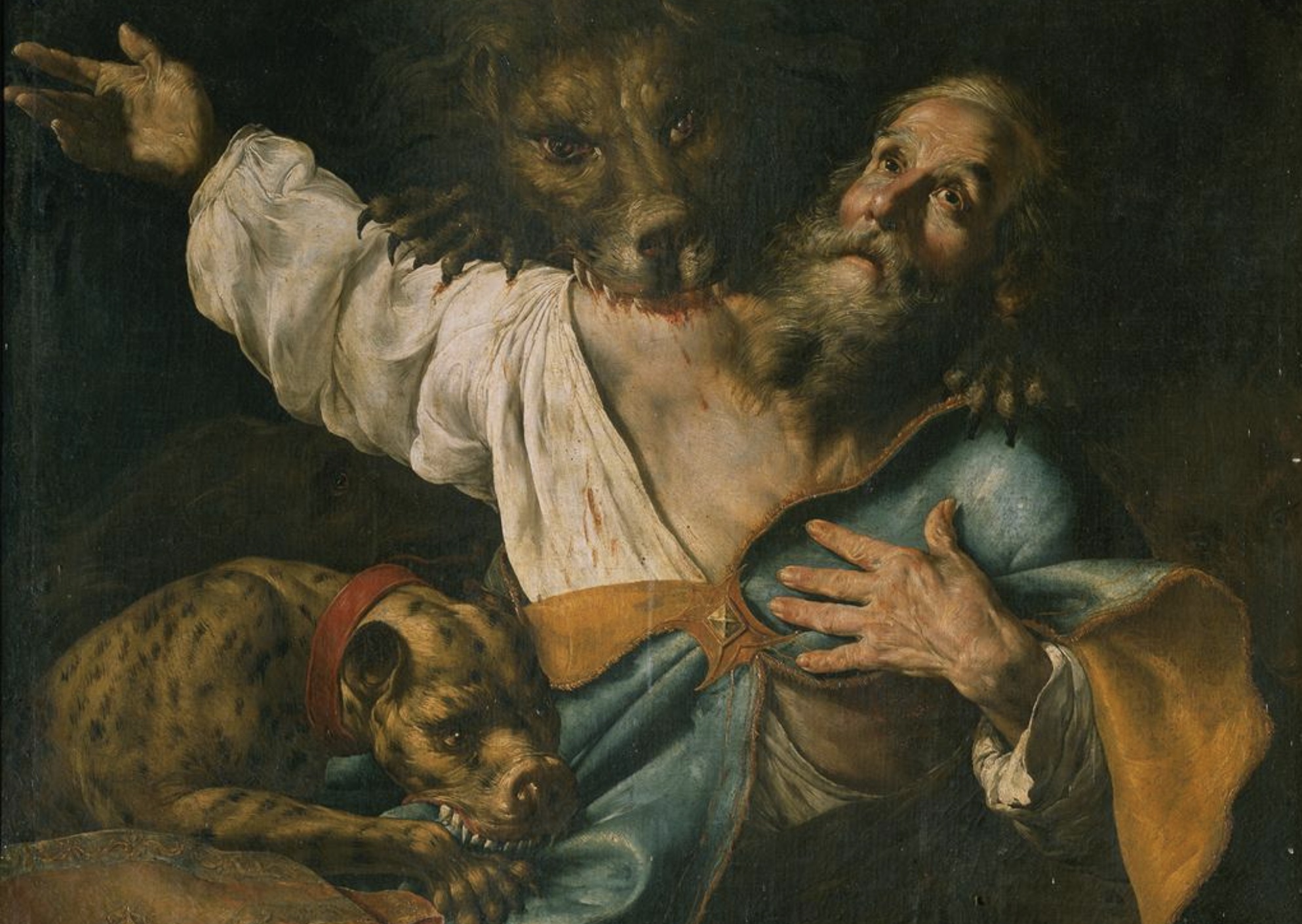
Many of our members who express interest in the Catholic Church have come to us because along the way they’ve discovered the testimony of the early Church Fathers. And one of those witnesses whose name comes up more often than not is St. Ignatius of Antioch (feast day October 17th), who hails from the city where the disciples “were first called Christians.” (Acts 11:26)
At the beginning of the 2nd century, St. Ignatius was arrested for his faith, and while being transported to Rome to be martyred in the arena, he composed a number of letters, which are among the most reliable original writings from the early Christian tradition.
St. Ignatius has a particular impact on those Christans who had previously thought that there wasn’t much to know about the first few generations of believers. Discovering how eloquently and faithfully he defends the Gospel – and how specifically he refers to teachings held by Catholics to this day – can be a real eye-opener to someone seeking the Church at Her origins.
Here are a few testimonies from our archive of written conversion stories, testifying to the impact of St. Ignatius on their journeys of faith:
*****
“I had no idea that writings from the disciples of the Apostles existed. It was equally shocking to read what they had to say about the authority and structure of the Church. St. Ignatius of Antioch, a disciple of the Apostle John, said in AD 107, ‘You all should follow the bishop as Jesus Christ does the Father… Let no one do anything that is proper for the church without the bishop. Let that Eucharist be considered valid that is under the bishop or performed by one to whom he entrusts it. Wherever the bishop appears, let there be the fullness [of the church] as wherever Christ Jesus appears, there is the catholic church.’ I became convinced that the Bible and the earliest accounts of Christianity in the world were profoundly Catholic, not Baptist, in their structure.” –Noel Culbertson
*****
“Reading the earliest Church Fathers, especially St. Ignatius of Antioch, I found a full expression of the Eucharist as the Body and Blood of our Lord. One quote from Ignatius especially moved me: ‘I have no taste for corruptible food nor for the pleasures of this life. I desire the bread of God, which is the flesh of Jesus Christ, who was of the seed of David; and for drink I desire his blood, which is love incorruptible…’ The utter beauty of the experience of God’s love, as described in the Fathers, still stirs my soul.” –Deacon Eddie Ensley
*****
“I was introduced by my husband to what (St. Ignatius of Antioch), in the very first century after Christ had to say about the Eucharist: ‘They have no regard for charity, none for the widow, the orphan, the oppressed, none for the man in prison, the hungry or the thirsty. They abstain from the Eucharist and from prayer, because they do not admit that the Eucharist is the flesh of our Savior Jesus Christ, the flesh which suffered for our sins and which the Father, in His graciousness, raised from the dead.’ How Catholic does that entire quote from the very first century sound! I was blown away by reading these early Christians and learning that it was possible to experience the Christian life just as they described in their writing — not in my Baptist church, as I had always imagined we were closest to the New Testament Christians, but in the Catholic Church!” –Sharon Plascenscia
*****
St. Ignatius of Antioch’s strength of teaching is compounded by the fact that he was born in the first century, and had direct connections to the apostles. Ignatius was head of the Church in Antioch, where only a few decades before, the faithful in that city had been led by St. Peter himself. Tradition also tells us that St. Ignatius was mentored by St. John the Apostle.
For a Christian who’s given little thought to the practical life of the generation of believers who succeeded the apostles, discovering Ignatius can be an extraordinary experience.
We have many more stories of our CHNetwork members who’ve been impacted by the witness and teachings of St. Ignatius of Antioch! You can find those, as well as hundreds of other testimonies from Catholic converts, in our written conversion story archive at chnetwork.org/story.






